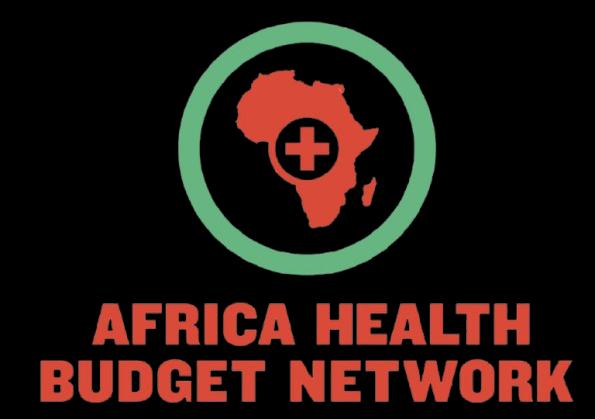By Muhammad Amaan
The Africa Health Budget Network (AHBN) has signed an agreement for continuous partnership with the Partnership for Maternal, Newborn and Child Health (PMNCH), hosted by the World Health Organization (WHO).
The agreement is to coordinate the implementation of the 2025 Collaborative Advocacy Action Plan (CAAP) in Nigeria that has been developed and agreed to by partners.
With the support from PMNCH, AHBN will coordinate the implementation of the overall CAAP and lead the delivery of agreed activities on coalition building for joint advocacy to accelerate the reduction of maternal, newborn, and child mortality.
It will protect and promote sexual and reproductive health and rights (SRHR) as well as galvanize greater domestic resources for women’s, children’s and adolescent’s health (WCAH) issues.
The advocacy goals outlined in the CAAP plan aim to advance key national priorities such as the Health Sector Renewal Investment Initiative (HSRII), the Sector-Wide Approach (SWAp), and Nigeria’s MNCH Acceleration Plan under Every Woman Every Newborn Everywhere (EWENE) agenda.
Through this partnership, AHBN will mobilize multi-sectoral stakeholders, including youth, civil society, media, those with lived experiences, parliamentarians and policymakers, to accelerate action and accountability for WCAH in Nigeria.
“This engagement with partners will yield the following objectives; Strengthened multi-constituency coalition for joint advocacy and accountability actions on WCAH issues; Advancement of efforts to accelerate progress on the unfinished agenda to reduce maternal, newborn, and child mortality and morbidity (as per the resolution adopted at the 77thg World Health Assembly), with a focus on protecting and promoting sexual and reproductive health and rights.
“Advocacy for sustained, increased, and effective use of financing, including through domestic resources, for WCAH.
A statement from the organisation, said the collaboration reinforces AHBN’s commitment to build resilient advocacy ecosystems and ensure that Nigeria’s health reforms deliver tangible results to improve the health of the most vulnerable women, children and adolescents.
“We note with appreciation the previous coordinating role of AHBN in the development of the CAAP in Nigeria,” said Dr. Aminu Magashi Garba, Coordinator, Africa Health Budget Network (AHBN).
“As we move into implementation, we envision the CAAP serving as a unifying framework that strengthens collaboration with the Federal Ministry of Health and constituencies including youth, civil society, media, people with lived experiences, parliamentarians and policymakers, accelerating progress on maternal, newborn, and child health, sexual and reproductive health and rights, and adolescent well-being.
“This will help ensure equitable health outcomes, sustainable financing, and stronger accountability mechanisms across the board.”
About the CAAP Initiative
PMNCH has adopted a partner-led approach to deepen accountability for commitments made towards women’s, children’s and adolescents’ health (WCAH), in order to accelerate WCAH outcomes.
The approach centres around more collaborative and coordinated engagement among partners around key WCAH advocacy priorities through the Collaborative Advocacy Action Plan (CAAP) initiative.
The CAAP initiative is underway in prioritized countries which are: Ethiopia, Kenya, Liberia, Malawi, Nigeria, Senegal, Sierra Leone, South Africa, United Republic of Tanzania and Zambia.
In each of these countries a Coordinating Partner has brought together diverse partners to developing the CAAP plan based on a scoping and assessment of government commitments, and through a multi-constituency approach by leveraging an existing (as possible) multistakeholder platform (MSP), inclusive of as many of the ten PMNCH constituencies as possible.
The leadership of the Ministry of Health in each of these countries has been critical to the process.This effort also included developing a Digital Advocacy Hub (DAH), an online platform to facilitate exchanges among partners, including information about key developments and occurrences in the health sector, contribution of knowledge, resources, ideas to advance government-led plans, as well as joint-work analysis of barriers and opportunities for coordinated action to advance mutual accountability.
The CAAP initiative aims to add value to the efforts of partners through:
– Improved evidence on existing commitments and policy gaps at the country level
– More meaningful engagement of underrepresented constituencies in national policy processes through multistakeholder convenings, strengthened alignment and coordination among PMNCH partners and other WCAH actors
– Greater diversity of multi-stakeholder partners in coalitions for increased alignment and providing a stronger platform for advocacy
– Enhanced visibility of and action for national advocacy and accountability efforts for WCAH commitments and, ultimately, increased accountability to accelerate the implementation of WCAH commitments.
For any additional inquiry including how to join this advocacy movement, reach out to info@africahbn.org.




